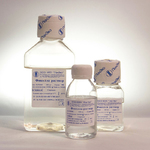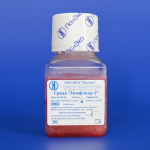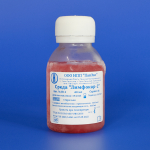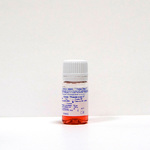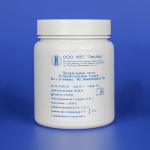Fibroblast growth factor sterile
Basic fibroblast growth factor; basic FGF; FGF-2; FGF-b
The main fibroblast growth factor has mitogenic activity and affects cell survival. FGF factors are involved in various biological processes, including embryonic development, cell growth, morphogenesis, tissue repair, and tumor growth. FGF modifies migration of endothelial cells and acts as an angiogenic factor. It is a mitogenic factor for mesodermal and neuroectodermal cells in vitro, thus FGF-2 is involved in organogenesis. Due to alternative splicing, different isoforms are described. Heparin-bound protein in vivo is an angiogenic factor and a mitogenic factor for many cell types in vitro.
This product is intended for research purposes.
Human recombinant FGF-2 is produced by E. coli, it is heterodimeric protein with disulfide bonds. It consists of 147 amino acid residues.
Molecular weight is 16.5 kDa.
The purity was determined by electrophoresis in polyacrylamide gel and is 95%
Lyophilized from sterile 20mM Tris, pH 7.4
FGF-2 preparation is stable at temperature of -70℃ for 12 months.
Diluted solution should be stored at temperature from -20℃ to -80℃.
Do not allow repeated freezing and thawing cycles.





